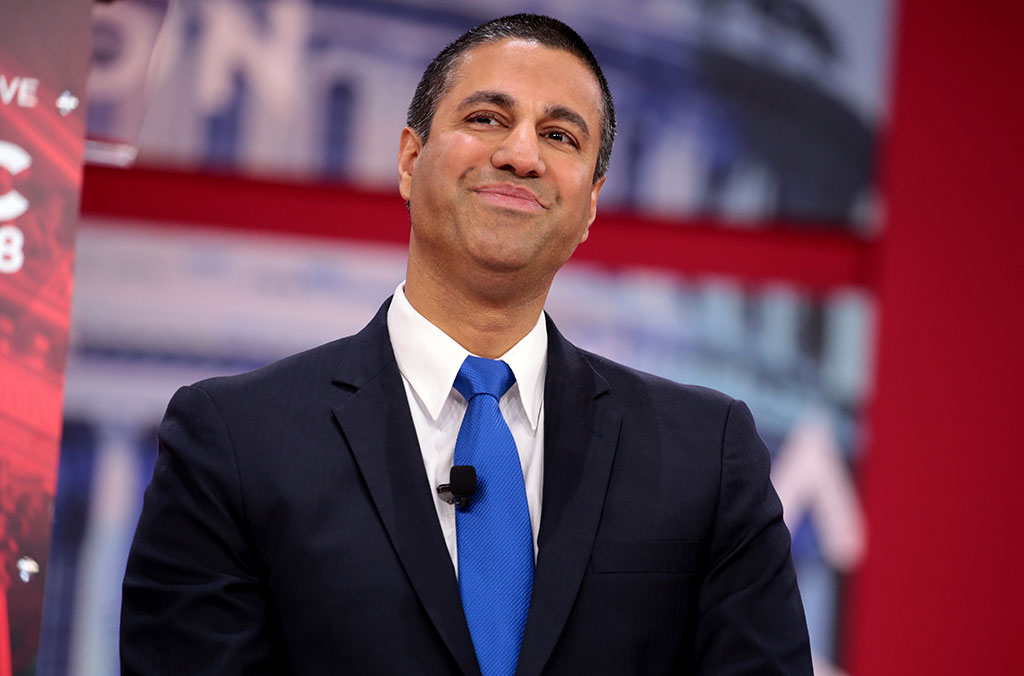It turns out the FCC ‘drastically overstated’ US broadband deployment after all
Ajit Pai isn't sweating it, though.

Remember in February when the Federal Communications Commission essentially said that broadband deployment in the US is going great despite 20 million homes lacking access to high-speed connections? And then a month later, Microsoft basically called bullshit? Well, the FCC has finally admitted the report "drastically overstated" actual broadband deployment, but still insists everything is just fine.
This whole thing stunk from the beginning, and still does. As noted by Ars Technica, FCC chairman Ajit Pai never actually publicly released a full broadband deployment report, and only issued a single-page press release with a few cherry picked numbers thrown in. Besides the obvious problem with that approach, those numbers turned out to be wrong.
Pai's office this week issued a release saying there is now a revised version of the draft report with updated figures.
"The revision reflects a thorough review of the initial draft triggered by the discovery that a company submitted drastically overstated deployment data to the FCC," the release states (PDF). "After appropriate revisions to the report, it continues to support the conclusion that significant progress has been made in closing the digital divide in America."
In other words, yes, the numbers were way wrong, but Pai and the FCC stand by the original assessment. Pai also took the opportunity to credit the agency's vote to disband net neutrality rules as to why everything is so great, even after adjusting the drastically overstated figures.
"The new data doesn’t change the report’s fundamental conclusion: we are closing the digital divide, which means we’re delivering on the FCC’s top priority. We’re achieving this result by removing barriers to infrastructure investment, promoting competition, and providing efficient, effective support for rural broadband expansion through our Universal Service Fund programs," Pai said.
The previous report claimed that the number of Americans lacking access to fixed broadband connections of at least 25Mbps downstream and 3Mbps upstream declined from 26.1 million at the end of 2016 to 19.4 million at the end of 2017.
Keep up to date with the most important stories and the best deals, as picked by the PC Gamer team.
Those figures were based on faulty data provided by BarrierFree. According to the revised report, the real number at the end of 2017 stood at 21.3 million Americans, not 19.4 million.
In addition, the previous report overstated the number of rural Americans with access to broadband speeds—it stated 5.6 million, whereas the revised draft report corrects that figure to 4.3 million.
Free Press was the organization that originally disputed the figures, stating in a filing with the FCC that "the numbers were goosed by claims by Barrier Communications Corporation." Matt Wood, general counsel and VP of policy at Free Press, praised the FCC's correction in a statement to Ars Technica, but also said that Pai is taking credit for something he doesn't deserve.
"We're very glad to see that the FCC has addressed the error Free Press identified. While Chairman Pai isn't a big-enough person to say our name or to mention Free Press's role in discovering an error that had eluded staff, we will take heart in the good result and leave Pai's pettiness out of it. Of course, fixing this error doesn't fix the other huge flaw we cited in our letter about BarrierFree: the Pai FCC keeps trying to take credit for broadband deployment and speed increases well under way before and during Title II's reinstatement," Wood said.
"So when Chairman Pai takes credit for ISP investment and improvements he quite literally had nothing to do with, it's an ongoing embarrassment that simply revising the numbers down cannot fix," Wood added.
The previous report's data also misrepresented the number of Americans with access to much faster speeds, including 100Mbps downstream and 50Mbps upstream.
Paul has been playing PC games and raking his knuckles on computer hardware since the Commodore 64. He does not have any tattoos, but thinks it would be cool to get one that reads LOAD"*",8,1. In his off time, he rides motorcycles and wrestles alligators (only one of those is true).


